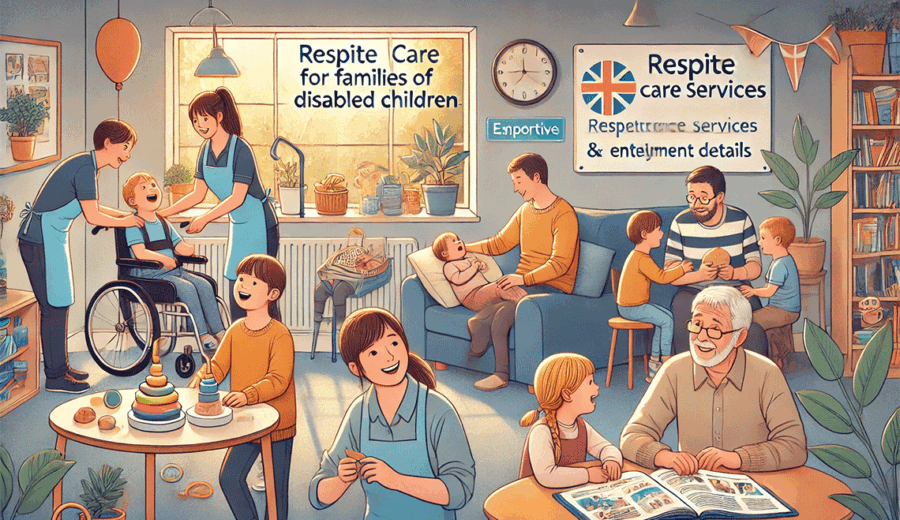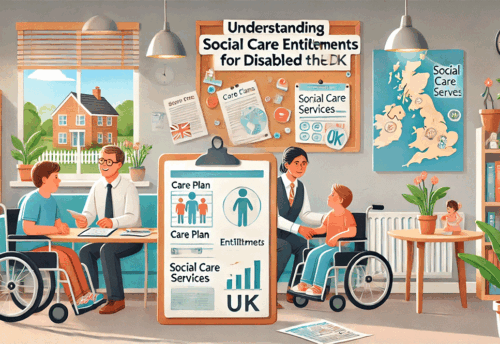
Respite Care for Families of Disabled Children
Respite Care for Families of Disabled Children: What You’re Entitled to in the UK
Caring for a disabled child is a demanding role, and respite care is a vital service that offers temporary relief to families. Understanding your rights and the available options ensures you can access the support you need. Here’s a detailed guide:
1. What is Respite Care?
Respite care provides short-term relief for caregivers by temporarily taking over the care of a disabled child. Services include:
- Daycare: Supervision during the day in specialized centers.
- Overnight Care: At residential facilities or with trained carers.
- At-Home Care: Caregivers come to your home.
- Community-Based Care: Activities or group programs for children.
2. Who is Eligible?
Families with disabled children under 18 may qualify for respite care if the child:
- Has significant physical or mental disabilities.
- Requires constant care or supervision.
- Has been assessed as needing extra support.
Eligibility is determined through a Child’s Needs Assessment conducted by your local authority.
3. Types of Respite Care
- Local Authority Services: Short breaks, daycare, and residential respite services.
- Specialist Charities: Many organizations, like Scope and Family Fund, provide additional respite support.
- Direct Payments: Allows families to arrange their own care by hiring caregivers.
- Holiday Schemes: Programs that offer care during school holidays.
4. How to Apply for Respite Care
- Contact Your Local Authority: Request a Child’s Needs Assessment or Carer’s Assessment.
- Provide Relevant Information: Include details of your child’s disability, care needs, and how it affects the family.
- Assessment Outcome: Determines the type and amount of respite care your family qualifies for.
5. Financial Support for Respite Care
- Disability Living Allowance (DLA): Helps with extra costs of caring for a disabled child.
- Carer’s Allowance: Financial aid for caregivers providing over 35 hours of weekly care.
- Direct Payments: Offered by local authorities to cover respite services, allowing families to choose providers.
6. Benefits of Respite Care
- For Families: Time to recharge, manage stress, and focus on personal needs or other family members.
- For Children: Engages them in social activities, promoting independence and development.
7. Rights and Legal Framework
Under the Children Act 1989, local authorities are required to provide services for disabled children, including respite care. Key rights include:
- Access to a Carer’s Assessment.
- The right to challenge decisions if services are denied.
- Support tailored to your child’s specific needs.
8. Respite Care Providers in the UK
- Local Councils: Offer services directly or through partnerships.
- National Charities: Include Barnardo’s, Action for Children, and Rainbow Trust.
- Specialized Care Centers: Facilities that cater to complex medical or developmental needs.
9. Preparing for Respite Care
- Visit Facilities: Ensure they meet your child’s needs.
- Create a Care Plan: Detail routines, medical requirements, and preferences.
- Communicate: Work closely with carers to ensure continuity of care.
10. Common Challenges and How to Overcome Them
- Limited Availability: Apply early and explore multiple providers.
- Funding Issues: Utilize direct payments or apply for grants from charities.
- Emotional Barriers: Build trust with carers through gradual introductions.
11. Finding Additional Support
- Local Offer Websites: Provide information on local services.
- Parent Networks: Share experiences and recommendations.
- Support Groups: Offer advice and emotional support.





Leave a Reply